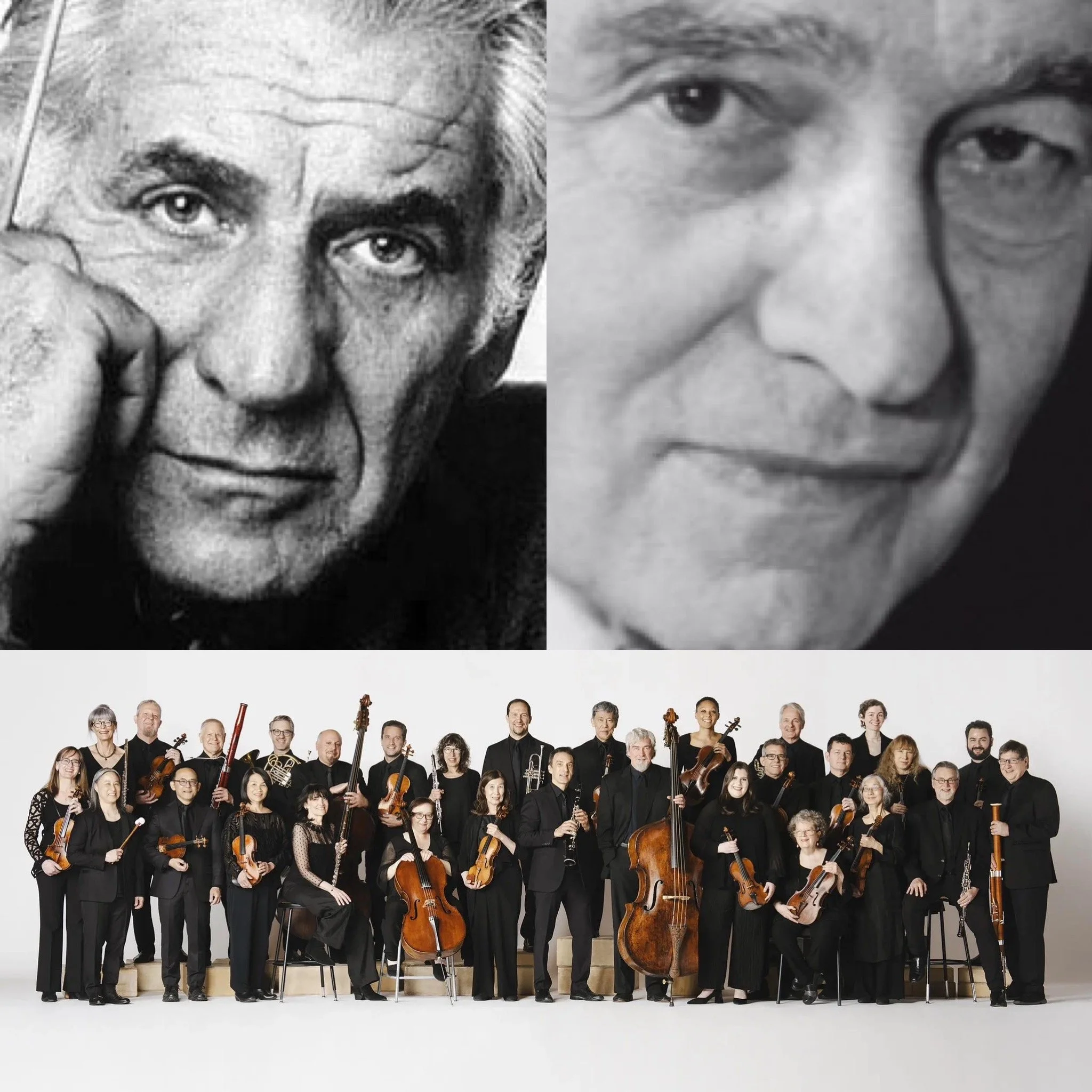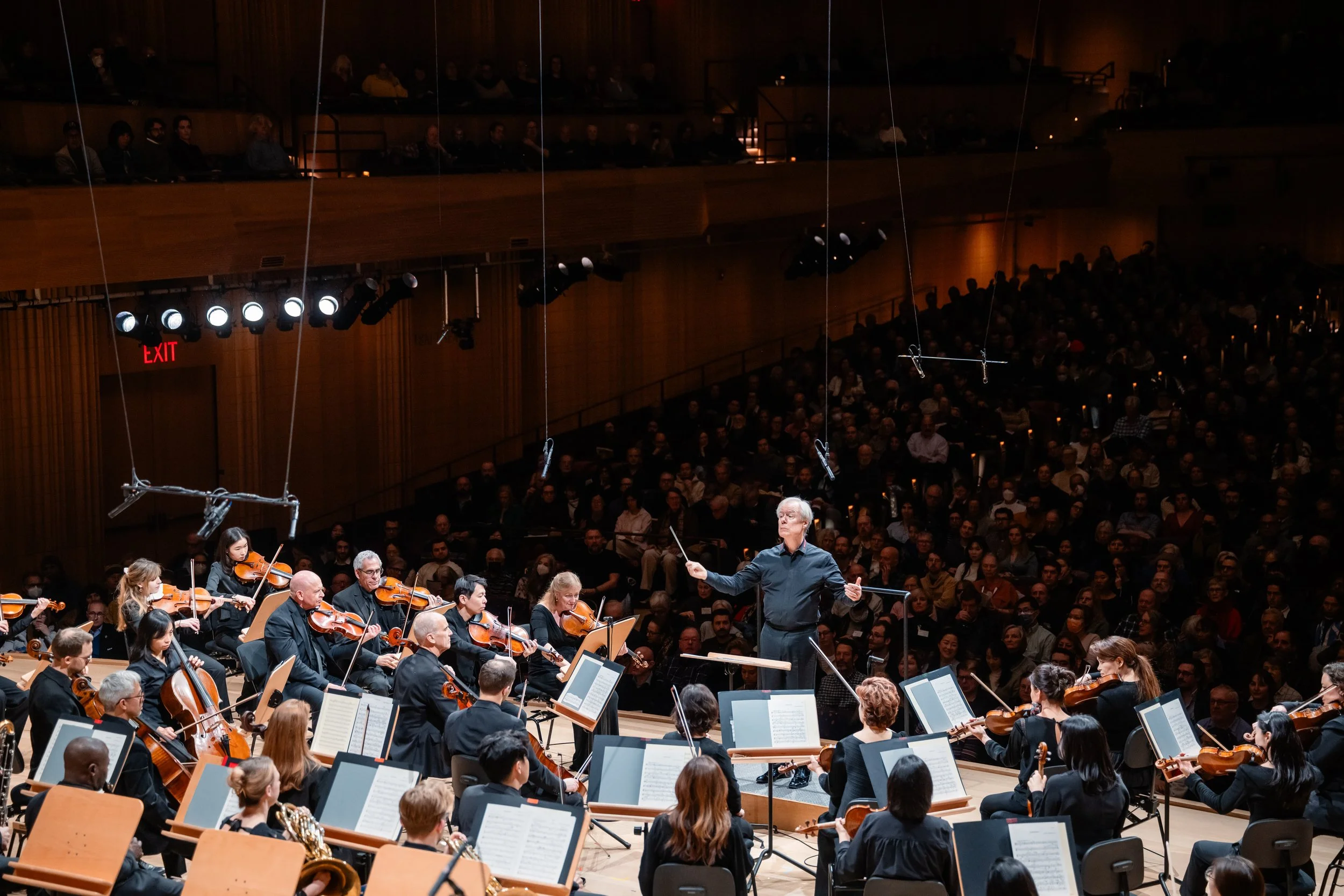REVIEW: Orchestra of St. Luke's Prays the "Kaddish"
January 29, 2025
Former Secretary of State Antony Blinken spoke with eloquent gravitas as he introduced the Orchestra of St. Luke’s, and his own mother, in advance of their monumental Carnegie Hall performance of Leonard Bernstein’s Symphony No. 3, “Kaddish,” commemorating the 80th anniversary of the liberation of Auschwitz. James Conlon conducted the sizable forces — large orchestra, chorus, children’s chorus, soprano soloist, and two speakers — with great command of the stage and rhetorical impetus.
Ross Parmenter, in his New York Times review of the 1964 American premiere, assessed that the work was “not really a symphony at all. Rather, it is part oratorio and part dramatic monologue. The recited part, indeed, bulked so large that it is almost as much a literary work as a musical one.”
Bernstein protégé Marin Alsop described the symphony as a “[vehicle] for Bernstein to explore his lifelong issues of personal faith, the elusive concept of peace and the conflict arising from our great human potential for, and attraction to, destruction.”
Bernstein’s sketches for his Third Symphony.
Dedicated to the memory of John F. Kennedy, and premiered 1963 in Tel Aviv in the wake of the U.S. president’s assassination. The original spoken text proved controversial, setting the tone from the start: “Oh, Holy Father, ancient hallowed lonely disappointed Father, angry wrinkled old Majesty, I want to pray.”
In this performance, Judith Pisar and Leah Pisar, widow and daughter of Polish-born Holocaust survivor (and advisor to J.F.K.) Samuel Pisar, shared duties orating the text he wrote in 2001 to replace the original. Reading Pisar’s Of Blood and Hope, Bernstein concluded that his own libretto was insufficient because “he had never suffered directly.” After the events of 9/11, Pisar responded with the text heard this evening, one reflecting his own story: “Eternal God, our Father in Heaven, This is my personal Kaddish — an ode to life and peace…”
Bard Festival Chorale, prepared by James Bagwell, and the joyful Brooklyn Youth Chorus, soared in Bernstein’s imaginative choral writing — which calls for humming and shouting, and even includes sitting and standing instructions. Like a Greek chorus, they weave the Aramaic Kaddish — the Jewish prayer for the dead — in and around the speaker’s disillusioned affront to God and the orchestra’s dramatic swells.
Diana Newman’s buttery, soothing lullaby for soprano, harp, and strings emerged from an alarming cacophony of “Amens” that explodes in the chorus from the violently expressionistic “Din-Torah.”
David Denby in The New Yorker (Nov 30, 2017) points out that “Bernstein does compose a tone row, but it is almost singable. He plays with it, bounces it around. He may have reveled in dissonance, but he was teasing atonality.”
Indeed, in his Harvard Lecture “The Twentieth Century Crisis,” Bernstein reflected on Arnold Schoenberg’s late-life return to tonality: “He loved music with such passion that the magnetic pull of tonality could never lose its hold on him. It conditioned his own music … even through the whole revolutionary development of his twelve-tone method … it still haunts those works by its conspicuous absence.”
Bernstein bucked the dogma of the era by confronting this paradox. In a 1977 interview with Peter Rosen, he explained of the Third Symphony, “one of the main points of the piece is that the agony expressed with the twelve tone music has to give way — this is part of the form of the piece — to tonality and diatonism even so that what triumphs in the end, the affirmation of faith is tonal.”
“For Bernstein, the crisis of the 20th century was a crisis of faith,” observed Aslop, “What can we believe in when mankind has the desire and capability to destroy itself? He conveys this crisis musically by pitting atonality against tonality. For Bernstein, atonality captured the musical end of civilization.”
Conlon led a rhythmically sharp, emotionally urgent reading by the Orchestra of St. Luke’s of Bernstein’s thorny score, which combines elements heard in On the Waterfront and Chichester Psalms. Pisar’s text, elegantly delivered by his family members, is smoother and less mannered than Bernstein’s idiosyncratic original, but nonetheless manages to confront God with a litany of complaints — from the Inquisition and slavery to genocide and nuclear missiles.
Bernstein’s Kaddish Symphony, an American cousin of Benjamin Britten’s War Requiem, remains a serious, probing representation of the human condition and the ambiguities of the modern age.






